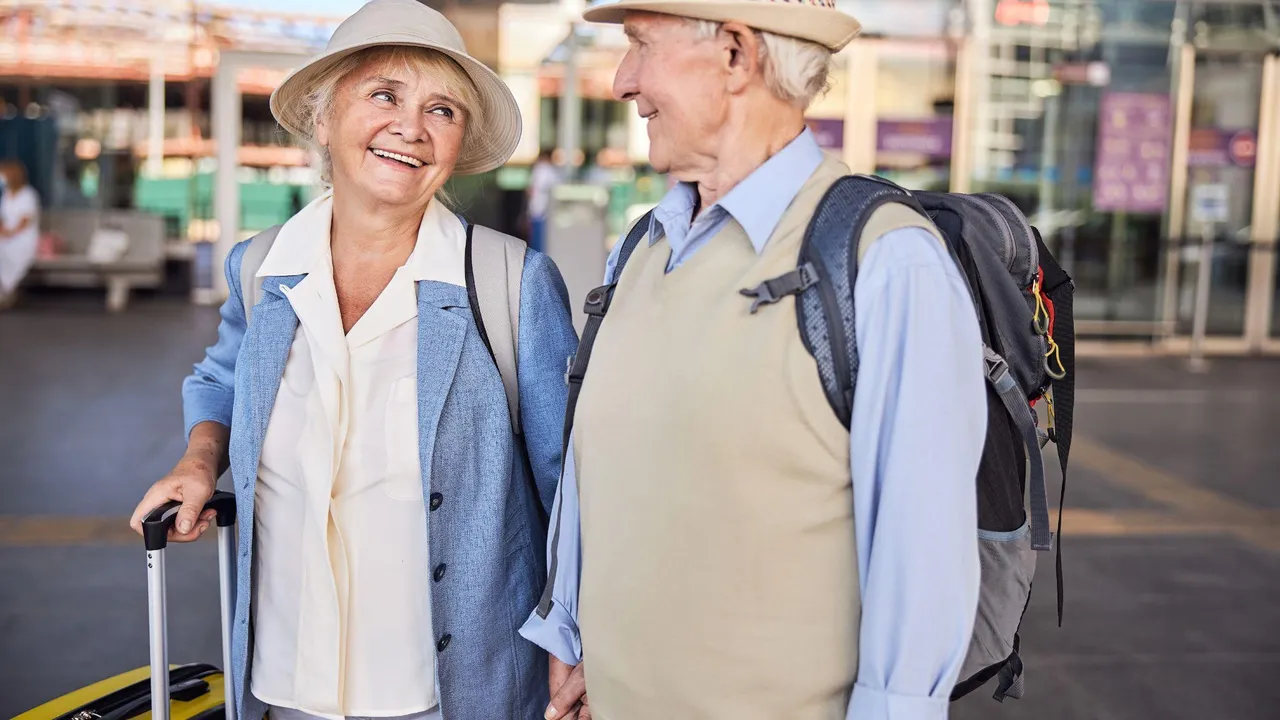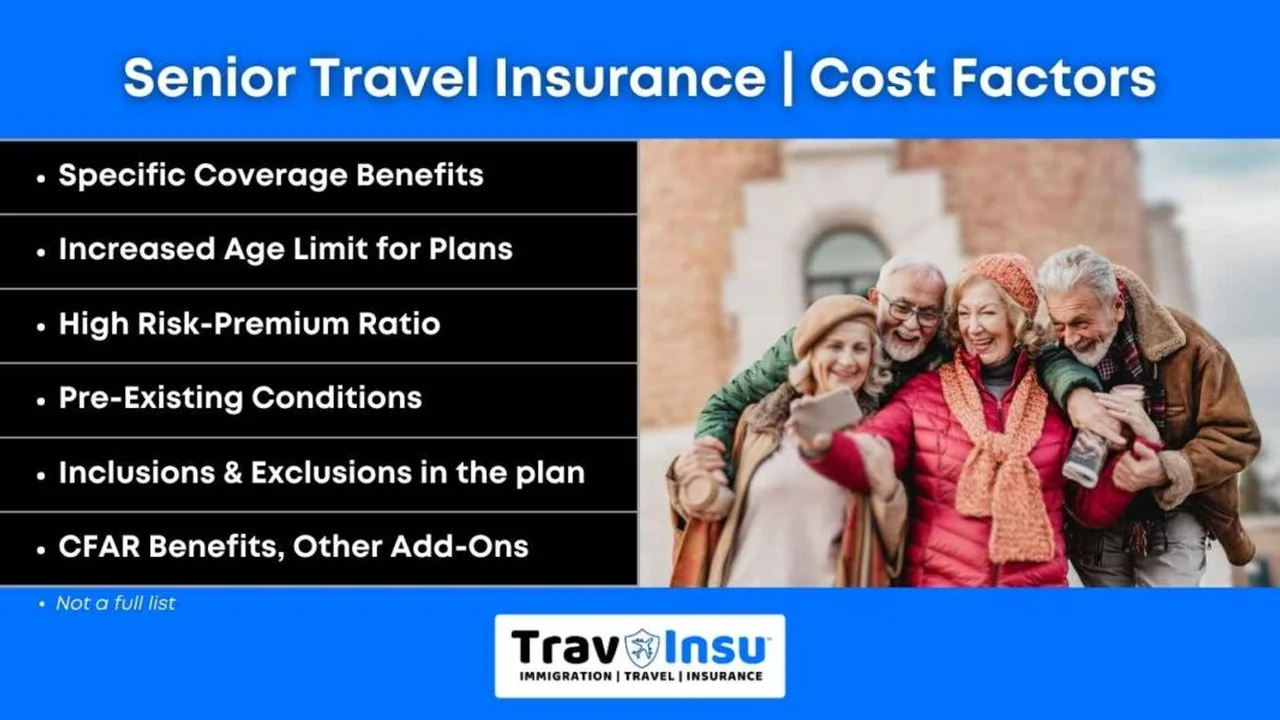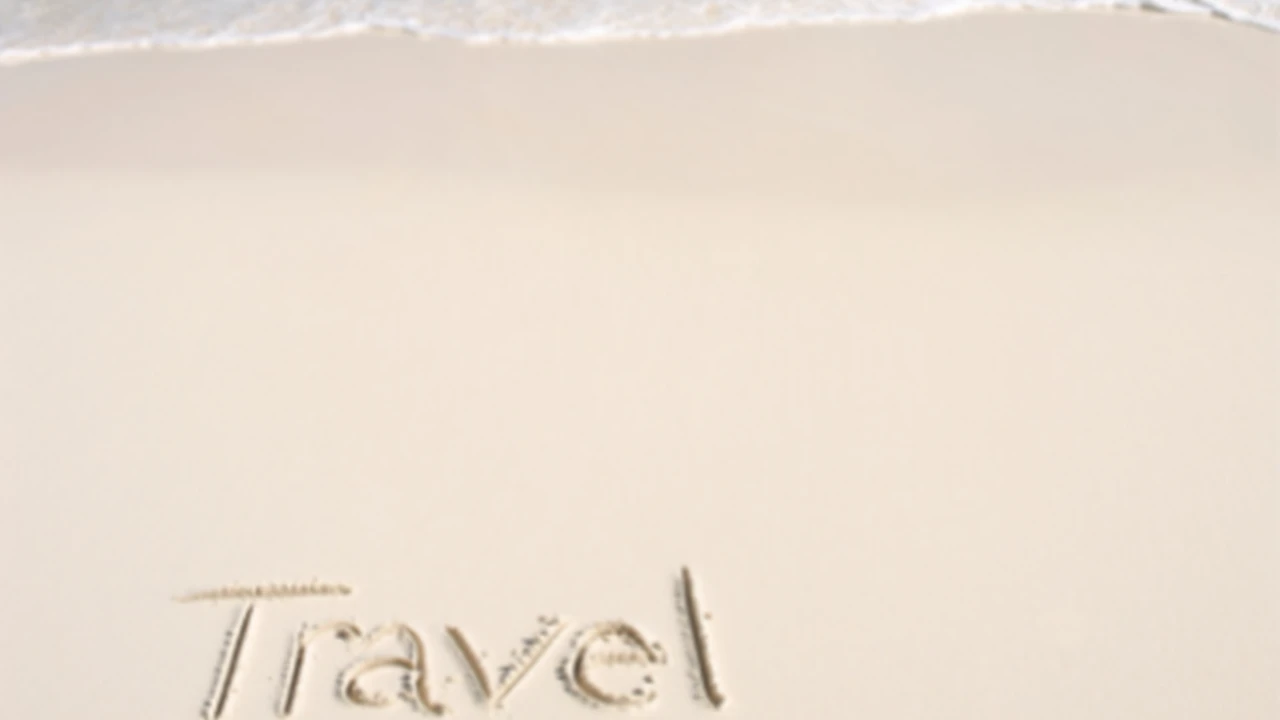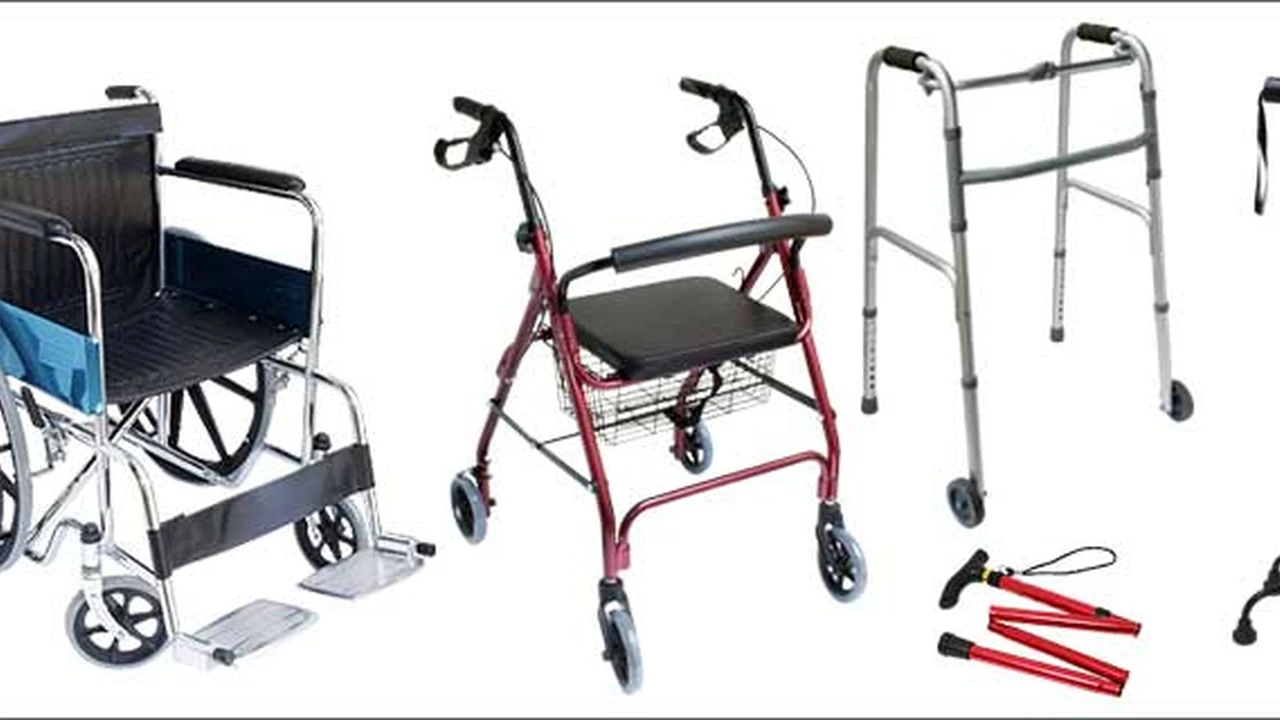Travel Insurance and Natural Disasters: Senior Travel Preparedness

Traveling to areas prone to natural disasters? Learn how travel insurance can help and how to prepare for emergencies. Stay safe and protected.
Understanding Natural Disaster Coverage in Senior Travel Insurance
Natural disasters are a harsh reality, and they can strike anywhere. As a senior traveler, you need to be especially prepared. Your health might not be what it used to be, and navigating unfamiliar situations can be challenging. That's where travel insurance comes in. But what exactly does it cover when a hurricane, earthquake, or flood hits?
Most comprehensive travel insurance plans offer coverage for trip cancellations or interruptions due to natural disasters. This means if a hurricane is forecast to hit your destination before you leave, you can cancel your trip and get reimbursed for non-refundable expenses like flights and hotel bookings. Similarly, if a natural disaster occurs while you're already traveling and forces you to cut your trip short, your insurance can cover the cost of returning home and any unused portions of your trip.
But it's not just about getting your money back. Travel insurance can also cover additional living expenses if you're stranded due to a natural disaster. This could include the cost of accommodation, meals, and transportation while you wait for things to calm down and it's safe to travel again. Furthermore, some plans offer coverage for medical expenses if you're injured during a natural disaster. This is especially important for seniors who may have pre-existing conditions that could be exacerbated by the situation.
Key Travel Insurance Benefits for Natural Disaster Preparedness
Let's break down the key benefits of having travel insurance when traveling to regions prone to natural disasters:
- Trip Cancellation/Interruption: Reimburses you for non-refundable trip costs if a natural disaster forces you to cancel or cut short your trip.
- Additional Living Expenses: Covers the cost of accommodation, meals, and transportation if you're stranded due to a natural disaster.
- Emergency Medical Expenses: Pays for medical treatment if you're injured during a natural disaster.
- Emergency Evacuation: Covers the cost of evacuating you to a safe location if necessary. This is crucial if you have mobility issues or require medical assistance.
- Baggage Loss/Delay: Reimburses you for lost or delayed luggage, which can be especially important if you rely on medication or medical equipment.
- 24/7 Assistance: Provides access to a helpline that can assist you with finding accommodation, arranging transportation, and communicating with local authorities.
Choosing the Right Travel Insurance Plan for Natural Disaster Prone Areas
Not all travel insurance plans are created equal. When traveling to areas prone to natural disasters, you need to choose a plan that offers comprehensive coverage and meets your specific needs. Here's what to look for:
- Check the Policy's Definition of "Natural Disaster": Make sure the policy covers the types of natural disasters that are common in your destination. Some policies may exclude certain events, such as volcanic eruptions or tsunamis.
- Review the Cancellation/Interruption Coverage: Understand the policy's rules for trip cancellation and interruption due to natural disasters. Some policies may require you to purchase coverage within a certain timeframe of booking your trip.
- Consider Emergency Evacuation Coverage: This is essential if you have mobility issues or require medical assistance. Make sure the policy covers the cost of evacuating you to a safe location, including transportation and medical care.
- Look for a Plan with High Medical Coverage: Unexpected medical expenses can quickly add up. Choose a plan with high medical coverage to protect yourself from financial hardship.
- Read the Fine Print: Understand the policy's exclusions and limitations. Some policies may exclude coverage for pre-existing conditions or activities that are considered risky.
Specific Travel Insurance Product Recommendations for Seniors Traveling to Natural Disaster Prone Areas
Okay, let's get down to some specific recommendations. Remember, prices can change, so always get a quote directly from the provider!
1. Allianz Travel Insurance: Prime Plan
Why it's good: Allianz is a well-known and respected insurer. Their Prime Plan offers solid coverage for trip cancellation, interruption, and medical expenses. Crucially, they have a good reputation for handling claims related to weather events.
Key Features:
- Trip Cancellation: Up to 100% of trip cost
- Trip Interruption: Up to 150% of trip cost
- Emergency Medical: $50,000
- Emergency Medical Transportation: $500,000
- Baggage Loss/Delay: $1,500
Typical Scenario: Imagine you've booked a cruise to the Caribbean during hurricane season. A hurricane forms and is predicted to hit your departure port. With Allianz Prime, you can cancel your trip and get reimbursed for your non-refundable cruise fare and flights.
Estimated Price: Varies significantly based on age, trip cost, and destination. Expect to pay anywhere from $150-$400 for a week-long trip.
2. World Nomads: Explorer Plan
Why it's good: World Nomads is popular with adventurous travelers, and their Explorer Plan offers coverage for a wider range of activities than some other plans. They also have a good reputation for flexibility and customer service.
Key Features:
- Trip Cancellation: Up to the trip cost (check specific limits)
- Trip Interruption: Up to the trip cost (check specific limits)
- Emergency Medical: Unlimited (for covered conditions)
- Emergency Medical Transportation: Unlimited (for covered conditions)
- Baggage Loss/Delay: Varies, check policy details
Typical Scenario: You're hiking in Nepal when an earthquake hits. The World Nomads Explorer Plan can cover your emergency medical expenses, evacuation to a safe location, and even the cost of replacing essential gear if it's lost or damaged.
Estimated Price: Typically more expensive than Allianz, ranging from $200-$500 for a week-long trip, depending on your age and the level of coverage you choose.
3. Travel Guard: Essential Plan
Why it's good: Travel Guard is another reputable provider with a variety of plans. The Essential Plan is a more budget-friendly option that still provides decent coverage for essential needs.
Key Features:
- Trip Cancellation: Up to 100% of trip cost
- Trip Interruption: Up to 150% of trip cost
- Emergency Medical: $25,000
- Emergency Medical Transportation: $500,000
- Baggage Loss/Delay: $1,000
Typical Scenario: You're visiting family in Florida during hurricane season. A hurricane warning is issued, and you need to evacuate. Travel Guard's Essential Plan can cover your additional living expenses, such as hotel costs, while you're waiting for the storm to pass.
Estimated Price: A more affordable option, often in the $100-$300 range for a week-long trip.
Comparing the Products
Here's a quick comparison table to help you visualize the differences:
| Feature | Allianz Prime | World Nomads Explorer | Travel Guard Essential |
|---|---|---|---|
| Trip Cancellation | 100% Trip Cost | Up to Trip Cost | 100% Trip Cost |
| Emergency Medical | $50,000 | Unlimited | $25,000 |
| Emergency Evacuation | $500,000 | Unlimited | $500,000 |
| Price (Estimate) | $150-$400/week | $200-$500/week | $100-$300/week |
| Best For | General travel, good balance of coverage and price | Adventurous travel, high medical coverage needs | Budget-conscious travelers, essential coverage |
Important Considerations:
- Pre-Existing Conditions: Always disclose any pre-existing medical conditions when purchasing travel insurance. Some policies may exclude coverage for these conditions, while others may offer waivers.
- Policy Limits: Be aware of the policy limits for each type of coverage. Make sure the limits are sufficient to cover your potential losses.
- Deductibles: Understand the deductible for each type of coverage. A higher deductible will typically result in a lower premium, but you'll have to pay more out-of-pocket if you file a claim.
Beyond Insurance: Practical Tips for Senior Travel in Natural Disaster Prone Areas
Travel insurance is crucial, but it's not the only thing you need to consider. Here are some practical tips for staying safe and prepared when traveling to areas prone to natural disasters:
- Stay Informed: Monitor weather forecasts and news reports before and during your trip. Sign up for alerts from local authorities and the National Weather Service.
- Develop an Emergency Plan: Know what to do in case of a natural disaster. Identify evacuation routes, shelters, and emergency contact information. Share your plan with family and friends.
- Pack an Emergency Kit: Include essential items like water, food, medications, a flashlight, a first-aid kit, and a portable charger.
- Register with the US Embassy: This will allow the embassy to contact you in case of an emergency.
- Communicate with Family and Friends: Keep your loved ones informed of your whereabouts and travel plans. Check in with them regularly.
- Consider Travel Advisories: The US State Department issues travel advisories for countries with safety and security concerns. Check the advisory for your destination before you travel.
- Learn Basic First Aid: Knowing basic first aid can help you assist yourself or others in case of an emergency.
- Have Copies of Important Documents: Keep copies of your passport, driver's license, insurance policy, and other important documents in a safe place.
- Be Aware of Your Surroundings: Pay attention to your surroundings and be aware of potential hazards.
- Trust Your Instincts: If something doesn't feel right, don't hesitate to take action.
Traveling as a senior can be incredibly rewarding, but it's important to be prepared for the unexpected. By understanding the risks associated with natural disasters and choosing the right travel insurance plan, you can protect yourself from financial losses and ensure a safe and enjoyable trip. Don't leave home without it!
:max_bytes(150000):strip_icc()/277019-baked-pork-chops-with-cream-of-mushroom-soup-DDMFS-beauty-4x3-BG-7505-5762b731cf30447d9cbbbbbf387beafa.jpg)






